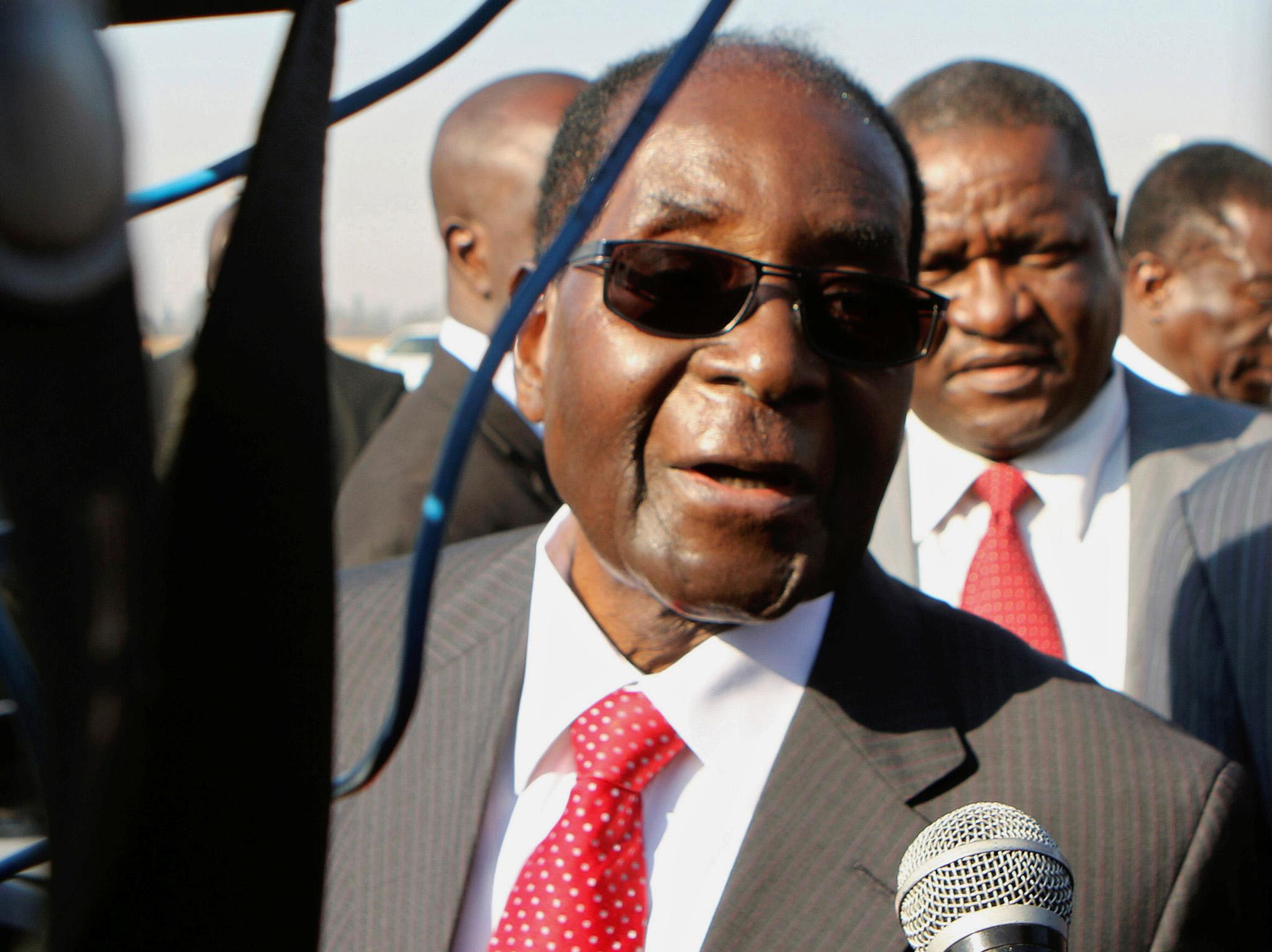Robert Mugabe arrives back in Zimbabwe after health scare and jokes 'Yes, it's true, I was dead'
'I had gone on a family matter to Dubai concerning one of my children'

Your support helps us to tell the story
From reproductive rights to climate change to Big Tech, The Independent is on the ground when the story is developing. Whether it's investigating the financials of Elon Musk's pro-Trump PAC or producing our latest documentary, 'The A Word', which shines a light on the American women fighting for reproductive rights, we know how important it is to parse out the facts from the messaging.
At such a critical moment in US history, we need reporters on the ground. Your donation allows us to keep sending journalists to speak to both sides of the story.
The Independent is trusted by Americans across the entire political spectrum. And unlike many other quality news outlets, we choose not to lock Americans out of our reporting and analysis with paywalls. We believe quality journalism should be available to everyone, paid for by those who can afford it.
Your support makes all the difference.Zimbabwean President Robert Mugabe arrived at the capital's main airport from abroad on Saturday, according to a Reuters witness, following intense rumours that he was gravely ill and had sought medical help in Dubai.
Mugabe, 92 and Africa's oldest leader, looked jovial as he disembarked in the company of security aides.
"I had gone on a family matter to Dubai concerning one of my children," he told reporters in the local Shona language, without giving details.
"Yes, I was dead, it's true I was dead. I resurrected as I always do. Once I get back to my country I am real," Mugabe added tongue-in-cheek in English, referring to speculation on some online news websites that he had succumbed to illness.
Reports that Mugabe's health is declining have become common but he has often referred to himself as "fit as a fiddle."
Mugabe rejects accusations by his political opponents that he has brought one of Africa's most promising economies to its knees since coming to power at independence from Britain in 1980.
Zimbabwe is struggling to pay salaries to soldiers, police and other public workers, fuelling political tensions including within his ruling ZANU-PF party.
Reuters
Join our commenting forum
Join thought-provoking conversations, follow other Independent readers and see their replies
Comments